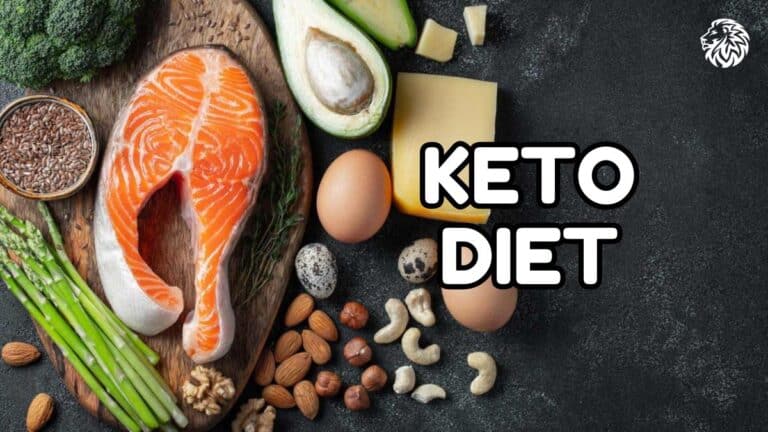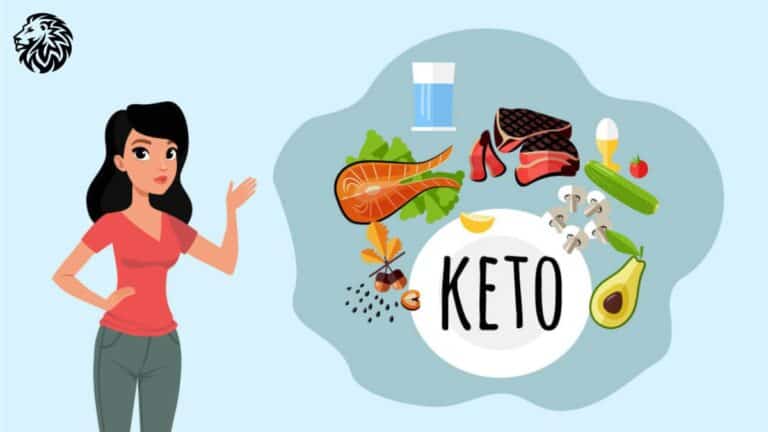The ketogenic diet, commonly known as “keto,” is a dietary regimen that emphasizes high fat, moderate protein, and low carbohydrate intake. Its primary goal is to shift the body’s metabolism from burning carbohydrates for energy to burning fats, a state known as ketosis. Originally developed in the 1920s for treating epilepsy in children, the ketogenic diet has gained widespread popularity in recent years as a weight loss and health improvement strategy. It is based on the principle that by drastically reducing carbohydrate intake, the body is forced to burn fat for fuel, leading to potential weight loss and health benefits.
With the rise in popularity of the ketogenic diet, there has been a proliferation of misconceptions and myths surrounding its practice and effects. These myths can lead to misunderstandings about the diet’s nature, effectiveness, and safety. Debunking these myths is crucial for providing clear and accurate information to individuals who are considering or currently following the keto diet. It ensures that decisions are made based on scientific facts and evidence rather than misinformation or anecdotal reports.
The objective of this article is to address and dispel some of the most common myths associated with the ketogenic diet. By examining scientific evidence and consulting expert opinions, the article aims to provide readers with a clearer understanding of what the keto diet entails, its potential benefits and drawbacks, and what can realistically be expected from adhering to this dietary approach. This information will empower readers to make informed decisions about their health and dietary choices, and to approach the keto diet with a balanced and well-informed perspective.
Myth 1: The Keto Diet is Primarily a High-Protein Diet

Clarification: High-fat, Moderate-protein, Low-carb Diet
The misconception that the ketogenic diet is primarily high in protein is widespread, but inaccurate. The core principle of the keto diet is a high fat intake, typically making up about 70-80% of total daily calories, combined with a moderate protein intake of around 20-25%, and a very low carbohydrate intake, usually 5-10% or less. This macronutrient distribution is crucial for maintaining ketosis, the metabolic state where the body burns fat for energy instead of carbohydrates.
Impact of Excessive Protein on Ketosis
Excessive protein consumption can potentially interfere with the process of ketosis. When the body receives more protein than it needs, it can convert amino acids from the protein into glucose through a process called gluconeogenesis. This glucose can then be used as energy instead of ketones, thus disrupting the state of ketosis. Therefore, it’s essential for individuals on the keto diet to balance their protein intake appropriately to ensure they remain in ketosis.
Expert Opinions and Studies
Numerous nutrition experts and clinical studies support the idea that the ketogenic diet is not primarily a high-protein diet. Research has shown that the successful implementation of the keto diet relies on a careful balance of macronutrients, with a predominant focus on fats. Studies also indicate that while moderate protein intake is important for muscle maintenance and overall health, it should not surpass the recommended percentage of total caloric intake for the diet to remain effectively ketogenic. These findings help dispel the myth and emphasize the importance of understanding the correct nutritional composition of the ketogenic diet.
Myth 2: Keto Inevitably Leads to Nutrient Deficiencies

Examination of Nutrient Intake on Keto
One common misconception is that the ketogenic diet inevitably leads to nutrient deficiencies due to its restriction of certain food groups, particularly carbohydrates. However, a well-planned keto diet can provide most, if not all, essential nutrients. While it’s true that reducing carbohydrate intake limits sources like fruits, whole grains, and certain vegetables, the keto diet includes nutrient-rich food choices like leafy greens, nuts, seeds, dairy, and certain fruits (like berries) that are low in carbs but high in vitamins, minerals, and other nutrients.
Strategies for Maintaining a Balanced Keto Diet
To avoid nutrient deficiencies while following a keto diet, it’s important to focus on the quality of the foods consumed. This includes:
- Choosing a variety of low-carb vegetables to ensure an intake of different vitamins and minerals.
- Including sources of omega-3 and omega-6 fatty acids, such as fatty fish, flaxseeds, and walnuts.
- Opting for high-quality protein sources like grass-fed meat, free-range poultry, and wild-caught fish.
- Incorporating a diverse range of healthy fats, including avocados, olive oil, and coconut oil. Proper planning and a focus on whole, unprocessed foods can significantly reduce the risk of nutrient deficiencies.
Supplements and Fortified Foods
In some cases, supplements may be necessary to meet certain nutritional needs on a keto diet. Common supplements include:
- Magnesium: To prevent cramps and muscular issues, as well as to improve sleep.
- Omega-3 Fatty Acids: To balance omega-6 fatty acids from eggs and meat.
- Vitamin D: Especially if sun exposure is limited.
- Electrolytes: Like sodium, potassium, and magnesium to avoid the “keto flu.” Additionally, certain fortified foods can help fill nutritional gaps. These might include keto-friendly products enriched with fiber, B vitamins, or antioxidants. However, it’s always advisable to consult with a healthcare provider or a dietitian before starting any supplement regimen to ensure they are necessary and appropriate for individual health needs.
Myth 3: The Keto Diet is Unsafe for Long-Term Health

Analysis of Long-term Effects of Keto
The long-term safety and effects of the ketogenic diet have been a topic of debate. While some argue that the diet may pose health risks over time, others suggest it can be sustained long-term with careful management. Research is ongoing, but some studies have shown that when followed correctly, a ketogenic diet can have sustainable health benefits. These include improved blood sugar control in diabetics, sustained weight loss, and improved cholesterol levels. However, it’s important to note that the diet may not be suitable for everyone, and long-term adherence requires careful monitoring and adjustments to ensure nutritional adequacy and overall health.
Distinguishing Between Good and Bad Fats
A critical aspect of the ketogenic diet is the type of fats consumed. Not all fats are created equal, and the quality of fats on a keto diet is crucial for long-term health.
- Good Fats: These include monounsaturated and polyunsaturated fats found in foods like avocados, nuts, seeds, olive oil, and fatty fish. These fats are known to support heart health.
- Bad Fats: Trans fats and certain saturated fats, often found in processed foods, should be avoided or minimized. These fats can increase the risk of heart disease and other health issues.
Studies on Cardiovascular and Metabolic Health
Numerous studies have examined the impact of the ketogenic diet on cardiovascular and metabolic health. Some research indicates that the diet can improve markers of metabolic syndrome, such as reducing triglycerides, LDL (bad) cholesterol, and blood pressure, while increasing HDL (good) cholesterol. Other studies have shown mixed results, with concerns about increased cholesterol levels in some individuals. The variation in outcomes suggests that the effects of the keto diet on long-term heart health may vary from person to person and depend on the types of fats consumed. It’s important for individuals on the diet to work with healthcare professionals to monitor their cardiovascular health and make adjustments as needed.
Myth 4: Ketosis and Ketoacidosis are the Same

Definition of Ketosis and Ketoacidosis
Ketosis and ketoacidosis are often confused but are distinctly different states.
- Ketosis: This is a natural metabolic state in which the body, due to a low carbohydrate intake, burns fat for fuel instead of glucose, leading to the production of ketones. Ketosis is the goal of the ketogenic diet and is generally safe for most people.
- Ketoacidosis: This is a dangerous and potentially life-threatening condition most commonly associated with type 1 diabetes. It occurs when ketones reach dangerously high levels in the blood, causing the blood to become too acidic. Ketoacidosis can also occur in individuals with type 2 diabetes under certain conditions, such as severe illness or insulin deficiency.
Distinguishing the Physiological Differences
- Mechanism: In ketosis, the level of ketones in the blood is elevated but controlled, typically within a range that is considered safe. In ketoacidosis, ketone levels are significantly higher and are accompanied by high blood sugar levels, leading to acidosis.
- Indicators: Ketosis can be monitored and measured by testing blood, urine, or breath for ketones. In contrast, ketoacidosis is characterized by symptoms such as extreme thirst, frequent urination, nausea, abdominal pain, weakness, confusion, and in severe cases, coma.
Risks Associated with Ketoacidosis
- Who is at Risk: Ketoacidosis is a rare occurrence in people following a ketogenic diet but is a significant risk for individuals with type 1 diabetes and, in some cases, type 2 diabetes, especially if they are not managing their insulin and glucose levels properly.
- Prevention and Management: For individuals with diabetes, regular monitoring of blood sugar and ketone levels is crucial. It’s important to seek immediate medical attention if symptoms of ketoacidosis appear. For those on a ketogenic diet without diabetes, staying hydrated, consuming enough calories, and ensuring nutritional balance can help maintain healthy ketone levels and prevent ketoacidosis.
Myth 5: The Keto Diet Guarantees Weight Loss for Everyone

Individual Variability in Response to Keto
The idea that the ketogenic diet guarantees weight loss for everyone is a common misconception. Individual responses to the keto diet can vary significantly due to factors like genetic makeup, metabolic health, and personal lifestyle. While many people experience significant weight loss on keto, others may find it less effective or even challenging to maintain. Some individuals may not respond as well to a high-fat diet due to variations in their metabolism or genetic predispositions that affect how their bodies process fats and carbohydrates.
Role of Calorie Intake and Lifestyle Factors
Weight loss on any diet, including keto, is often a result of a calorie deficit, where the body burns more calories than it consumes. The ketogenic diet can naturally reduce appetite and calorie intake due to its high fat and protein content, which are more satiating than carbohydrates. However, it’s still possible to overconsume calories on a keto diet, especially from high-calorie foods like oils, nuts, and fatty meats, which can hinder weight loss. Lifestyle factors also play a significant role. Physical activity, sleep quality, stress levels, and overall diet quality can all influence weight loss success. Simply adopting a ketogenic diet without considering these other factors may not lead to the desired weight loss.
Success Stories vs. Scientific Evidence
While there are numerous anecdotal success stories of dramatic weight loss on the keto diet, it’s important to balance these accounts with scientific evidence. Research shows that while the ketogenic diet can be effective for weight loss in the short term, its long-term efficacy is similar to other diets when calorie intake is matched. Additionally, individual differences in diet adherence, metabolic health, and lifestyle changes should be considered. It’s also important to note that rapid weight loss often seen at the beginning of a keto diet is largely due to water loss from glycogen depletion, rather than fat loss.
Myth 6: Keto is Just Another Fad Diet

Historical Context of the Ketogenic Diet
Contrary to the perception of being a recent fad diet, the ketogenic diet has a long and well-established history, particularly in the medical field. It was first developed in the 1920s as a treatment for epilepsy, particularly in children who did not respond to medication. This historical use underscores the diet’s medical legitimacy and differentiates it from diets that have emerged purely for weight loss or aesthetic purposes.
Therapeutic Uses Beyond Weight Loss
Beyond its popularity for weight loss, the ketogenic diet has been studied for various therapeutic applications, indicating its potential beyond a typical diet trend.
- Neurological Disorders: Its original use for epilepsy has expanded to research in other neurological disorders, such as Alzheimer’s disease, Parkinson’s disease, and certain sleep disorders.
- Metabolic Disorders: Some studies suggest benefits for metabolic syndrome, type 2 diabetes, and possibly for insulin resistance.
- Cancer Research: Preliminary research is exploring the effects of a ketogenic diet on certain types of cancer, with the theory that it could potentially starve cancer cells of glucose, their main energy source.
Comparisons with Other Dietary Trends
When compared to other dietary trends, the ketogenic diet stands out due to its specific macronutrient ratios and the physiological state of ketosis it induces. Most fad diets focus primarily on weight loss without substantial scientific backing or they rapidly fluctuate in popularity. The keto diet, however, has been the subject of extensive scientific research, particularly regarding its therapeutic potential. Its enduring presence in both clinical and nutritional fields over the years suggests that it is more than just a passing trend. Nonetheless, like any diet, it may not be suitable for everyone and should be approached with careful consideration and ideally under medical or nutritional guidance.
Myth 7: You Can’t Exercise Effectively on Keto

Adaptation Phase and Energy Levels
The belief that one cannot exercise effectively while on a ketogenic diet stems from misconceptions about energy levels during ketosis. Initially, during the adaptation phase of transitioning into ketosis, some individuals may experience reduced energy levels, commonly known as the “keto flu.” This temporary state can lead to decreased endurance and strength. However, once the body adapts to burning fat for fuel — typically within a few weeks — many individuals report a return to normal or even enhanced energy levels. The key is allowing the body time to adjust to this new energy source.
Types of Exercise Best Suited for Keto
Certain types of exercise may be more compatible with the keto diet:
- Endurance Training: Long-duration, lower-intensity activities like jogging, cycling, or swimming can be well-suited to a fat-fueled metabolism, as the body can efficiently utilize fat for prolonged energy.
- Strength Training: While initial decreases in explosive strength might be experienced, many individuals find they can maintain or even improve their strength levels once adapted to the diet.
- Flexibility and Stability Exercises: Activities like yoga or Pilates are generally unaffected by dietary changes and can complement a keto lifestyle. It’s important to note that high-intensity interval training (HIIT) or very high-intensity workouts might be more challenging in the early stages of keto, but many adapt to these with time.
Athlete Testimonials and Performance Studies
There are numerous testimonials from athletes, particularly in endurance sports, who report improved performance and better energy management while on a ketogenic diet. Scientific studies in this area have shown mixed results, with some indicating that a ketogenic diet can support sustained physical performance, particularly in endurance sports, while others suggest limitations in high-intensity activities. It’s important to consider individual variability — what works for one athlete may not work for another. Ongoing research continues to explore the complex relationship between ketogenic diets, energy production, and athletic performance.
Conclusion
This article has addressed and debunked several common myths surrounding the ketogenic diet, providing a clearer and more accurate picture of what this diet entails:
- High-Protein Misconception: Clarified that keto is a high-fat, moderate-protein, and low-carb diet.
- Nutrient Deficiency Concerns: Demonstrated that a well-planned keto diet can provide essential nutrients and is not inherently deficient.
- Long-Term Health Risks: Explored the potential long-term effects of keto, emphasizing the importance of healthy fat choices.
- Ketosis vs. Ketoacidosis: Distinguished between ketosis, a safe metabolic state, and ketoacidosis, a dangerous condition.
- Guaranteed Weight Loss: Addressed individual variability in weight loss response and the role of overall lifestyle.
- Fad Diet Label: Highlighted the historical and therapeutic significance of the keto diet.
- Exercise Effectiveness: Debunked the myth that exercise is ineffective on keto and discussed suitable types of physical activity.
This exploration encourages readers to make informed dietary choices based on scientific understanding and personal health considerations. It’s essential for anyone considering the ketogenic diet to approach it with a balanced perspective, recognizing both its potential benefits and limitations. Consulting with healthcare providers and nutrition experts can provide personalized guidance and ensure that dietary choices align with individual health needs and goals.
The ketogenic diet, like any dietary approach, is not a one-size-fits-all solution. It can be an effective tool for certain health and wellness goals but may not be suitable for everyone. It’s important to recognize that diet is just one aspect of a holistic approach to health. Long-term success and well-being depend on a combination of balanced nutrition, regular physical activity, adequate sleep, and stress management. Those considering the ketogenic diet should view it as a potential lifestyle choice rather than a temporary fix, ensuring sustainability and alignment with their overall health objectives.







